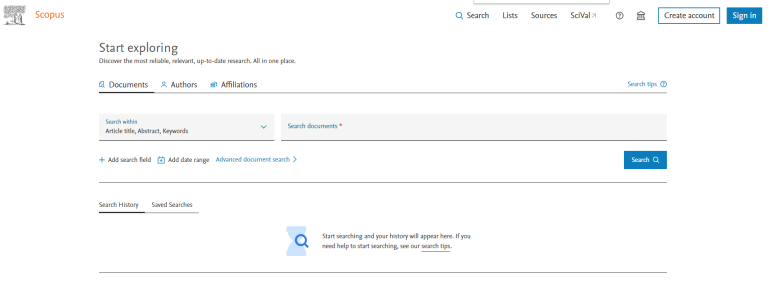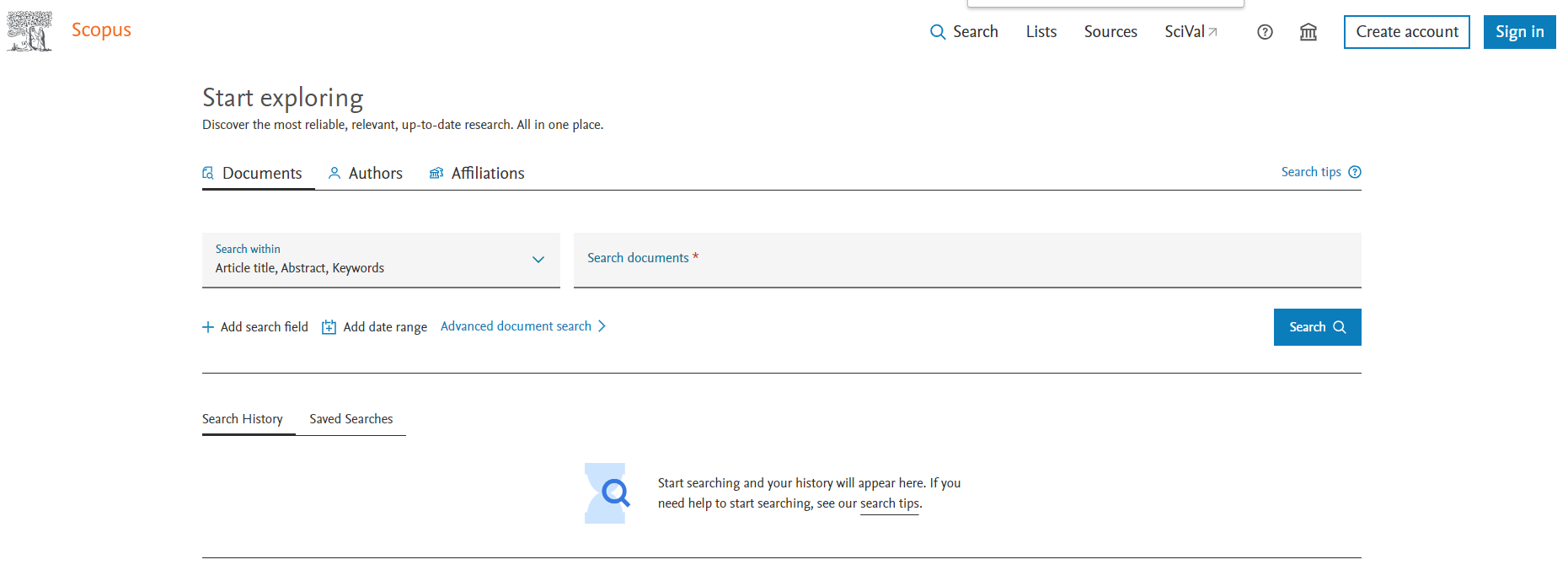Introducing Scopus
Posted: February 1, 2023
The library is excited to announce our latest subscription database: Scopus. Scopus is a comprehensive, interdisciplinary database that covers not only the health sciences, but also the life sciences, social sciences, physical sciences, and humanities. For our faculty and students working in interdisciplinary fields, we think it will be a great addition to our collection and enable more successful interdisciplinary research. In addition, as a large and well-respected database, Scopus will be an invaluable tool for all kinds of literature reviews, including systematic and scoping reviews.
In addition to its comprehensive journal coverage, Scopus is a particularly good way to find gray literature without having to search additional databases. Scopus contains a large number of conference papers, as well as preprints from major preprint servers such as MedRxiv, BioRxiv, SSRN, and Research Square. This makes Scopus a great way to see relevant academic literature that you can’t find in traditional databases such as PubMed.
Another of Scopus’ strengths is its research impact metrics. Scopus contains robust metrics for individual articles, authors, journals, and whole institutions. You can use Scopus to learn how often and by who a journal article is being cited, as well as how often it is being downloaded, viewed, shared on social media, talked about on the news, and more. Scopus’ author profiles provide a thorough and easy-to-read breakdown of an individual author’s research impact, including their citations, publishing trends, and h-index. Lastly, Scopus contains three different forms of journal metrics, making it easy to get a thorough understanding of a journal’s place in the research ecosystem, measured through a variety of different factors. To learn more about how to use Scopus’ research metrics, check out our Using Scopus for Publication Metrics page.
If you would like to learn more about how to use Scopus, our Database Help Guide contains links to tutorials, training, and a recording of a Scopus workshop hosted by the library. If you have any questions about Scopus or would like one-on-one training, feel free to reach out to your liaison librarian for help.
